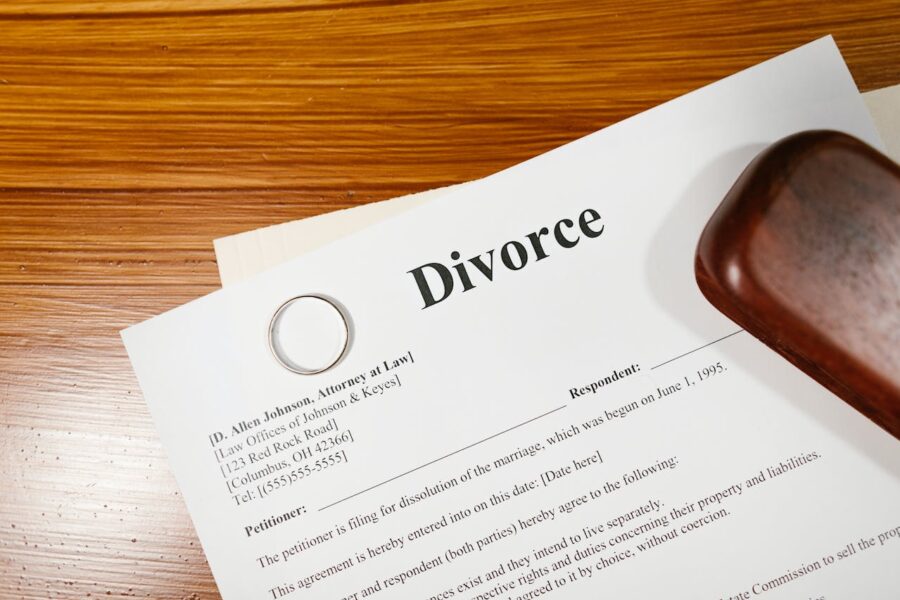
Can my spouse end our marriage without me?
Deciding to divorce is not something spouses always do together. Often, one person decides to divorce, and the other person eventually consents, or at least comes to terms with it. However, there are also situations where the other person does not accept the decision. Putting your head in the sand is not a great idea.
If you are on the receiving end of a Divorce Application, you should know what happens if you contest a divorce or decline to participate in the process (which is a very bad idea). Read our blog to answer the question – Can my spouse end our marriage without me?
Different types of divorce
There are different types of divorce, and they largely depend on the response or lack thereof of the respondent, which would be you if your spouse files for divorce.
- Uncontested divorces reflect splits where both parties are participating in the process and working together to reach agreements. They can resolve their issues (often with the help of lawyers), sign their Agreement, and then let the divorce itself be processed as “uncontested”. (It’s still a good idea to have the operative terms of their Agreement placed into the Divorce Order.)
- Contested divorces include those where parties disagree on resolutions. In this type of divorce, you respond to the divorce filing but do not agree on one or multiple issues.
- If you do not consent to the divorce, your spouse can still move forward by showing a breakdown of the marriage. Upon proving this (and it’s not hard to prove at all), a court can grant the divorce without your consent. The real danger here is not the ‘divorce’ itself; rather, it’s all the other issues where decisions will be made and orders made without your side being considered.
- If you do not respond, the courts can still move forward and grant the divorce after 30 days (assuming that you have been separated already for at least one year).
In other words, your spouse can get a divorce even if you do not want one. However, your response to the divorce filing will have a dramatic effect on the outcome. Remember, there is more at stake than just your personal status of being ‘divorced’ or ‘married’. You need to be aware in order to answer the question; Can my spouse end our marriage without me?
Why your response (or lack thereof) matters
It will be in your best interests to respond to divorce papers. When you respond, you allow yourself to argue against unfair or unreasonable terms. You also have more control over critical matters, including financial support. If you don’t respond within the time limits stipulated on the face of the Application, then you will not be entitled to any further notice and you will therefore be at the mercy of your spouse and the court. And that just ain’t a great position to be in!
You should cooperate procedurally with your soon-to-be-ex-spouse. You will be able to make the process less painful, less costly, and less time-consuming. Often, people who do not want to divorce ultimately choose this route because it is a more respectful way to exit the marriage and have the important issues addressed. Defending the case does not mean that it has to be a war in court. Of course, you certainly do want to put your side forward and hopefully negotiate a resolution that is a fair one.
If you do not respond, you are not stopping the divorce from happening without you. Ultimately, the divorce will move forward without your input or consent. And there will likely be some very painful orders made against you in your absence. So – do yourself a favour; defend the Application.
There is one possible exception. If the only claim against you is for a simple divorce and nothing else, then you can consider not defending. However, if you have a property claim, letting the divorce go uncontested will decrease a six-year limitation period down to two years from the date of the divorce order. And if there are children or potential support claims of any kind, then it might be best to assert those claims in the context of the Divorce Application. You need a lawyer to advise you on what is best.
Know your rights; Know your responsibilities
Divorce can be painful, especially if you are not the person seeking it. However, you have rights to protect, and you deserve a fair outcome. Having your voice heard in your divorce can help you protect your future, whatever it may hold.
Can my spouse end our marriage without me? To learn about your rights and responsibilities, it makes sense to seek out a consultation with a competent family law lawyer. Here is one link to get more information on that.




